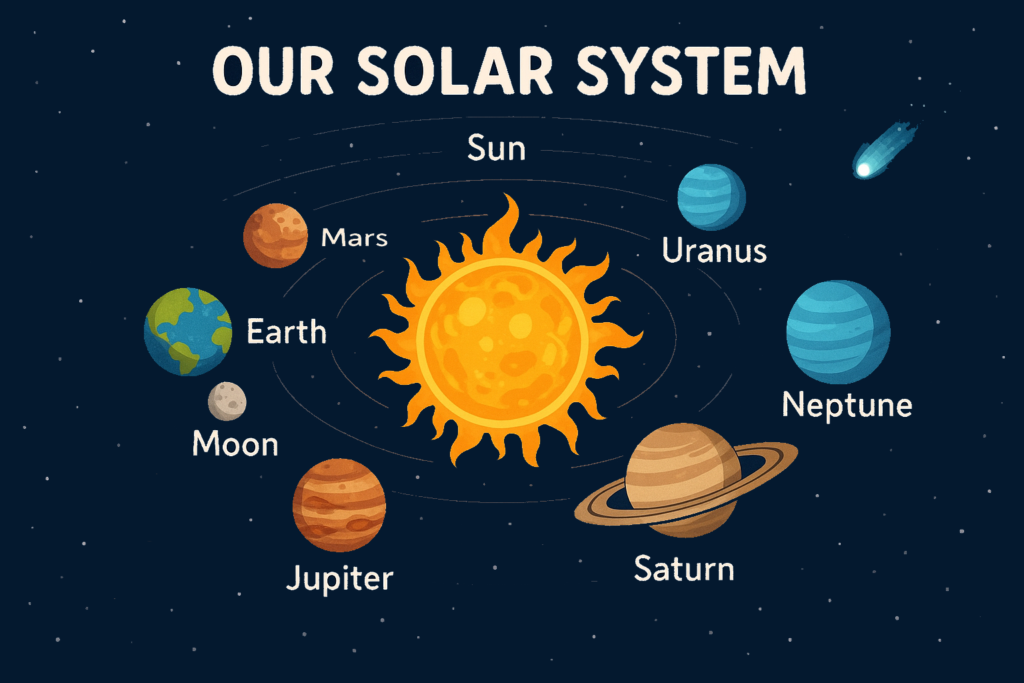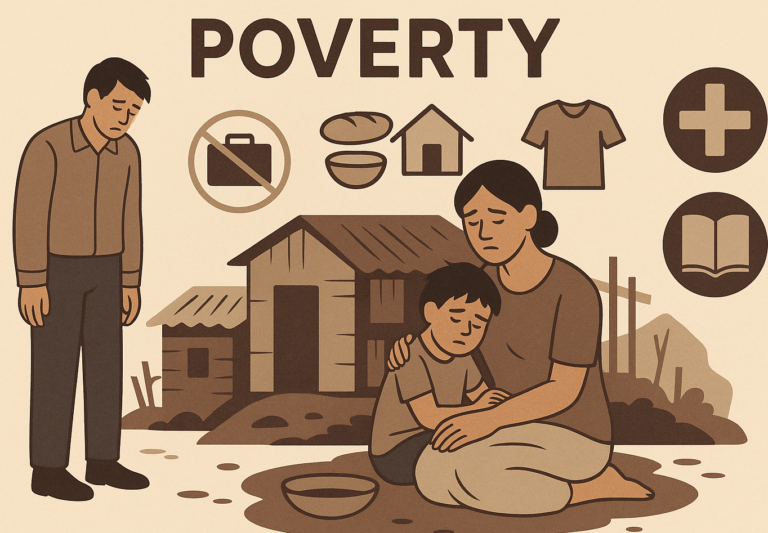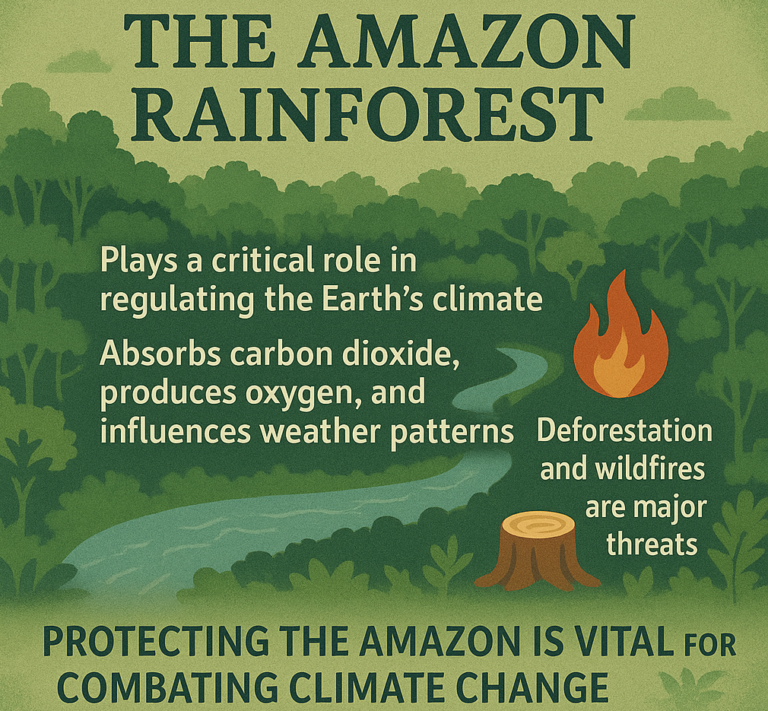Global citizenship is the idea that people are not just citizens of their own country, but also part of a larger, interconnected world. It involves understanding that we share the planet with people from many different cultures, languages, and backgrounds. As global citizens, we recognize our responsibilities not just to our local communities or nations, but to everyone on Earth. This concept encourages us to think beyond borders and to work together for the betterment of the entire world.

What is Global Citizenship?
Global citizenship is the idea that:
- We are all part of a global community: Regardless of where you are born, you are connected to people all over the world. We share common challenges, such as climate change, poverty, and health issues, that require global cooperation.
- Our actions affect others globally: Whether it’s how we consume resources, how we trade, or how we treat the environment, our choices have an impact on people in other countries. Global citizenship encourages us to make decisions that benefit not only ourselves but everyone.
- It’s about respect and inclusion: Being a global citizen means respecting and valuing other cultures, ideas, and perspectives. It’s about being open-minded and understanding that everyone’s well-being is connected.
Core Principles of Global Citizenship
- Interdependence
- The world is interconnected. This means what happens in one country can affect others, and we all have a role in making the world a better place. For example, pollution from one country can affect the environment globally, and global citizens work to reduce such harm.
- Respect for Diversity
- As global citizens, we value the differences between people and cultures. Instead of thinking only in terms of national identity or ethnicity, global citizens appreciate diversity and work towards inclusion, equality, and social justice.
- Social Responsibility
- A global citizen recognizes their responsibility not just to their local community but to the world community. This means taking part in efforts to address global issues like poverty, climate change, human rights, and conflict resolution.
- Sustainability
- Global citizenship involves working toward a sustainable future. This means caring for the planet by using resources responsibly, protecting ecosystems, and making choices that help future generations.
- Active Participation
- Being a global citizen means getting involved in global issues, whether through volunteering, advocating for policies that benefit the world, or making sustainable choices in your own life.
Why Is Global Citizenship Important?
- Tackling Global Issues Together
- Many of the biggest challenges we face today, such as climate change, poverty, pandemics, and conflict, are not confined to one country. They require global cooperation to solve. Global citizens understand this and work towards collective solutions.
- Building Peace and Understanding
- In a world filled with cultural, religious, and political differences, global citizenship promotes peace and understanding. It encourages people to move beyond stereotypes and work together despite differences, leading to better international relationships and cooperation.
- Fostering Equality
- Global citizenship can help fight against inequality by promoting human rights, fair trade, and social justice. A global citizen cares about the well-being of everyone, regardless of their nationality, and advocates for equal treatment for all people.
- Caring for the Environment
- Many environmental problems, like deforestation, pollution, and loss of biodiversity, require international cooperation. Global citizens work towards solutions that benefit the environment, recognizing that it affects everyone on Earth.
How Can You Be a Global Citizen?
- Educate Yourself
- Learn about global issues such as human rights, environmental protection, and social justice. Being informed about these topics will help you make better decisions and take meaningful action.
- Be Open-Minded and Tolerant
- Show respect for different cultures, beliefs, and ideas. Embrace diversity and try to understand the experiences and challenges faced by people in different parts of the world.
- Reduce Your Environmental Impact
- Make sustainable choices in your daily life, such as reducing waste, conserving energy, and supporting eco-friendly businesses. This helps contribute to a healthier planet for future generations.
- Support Global Movements
- Get involved in international organizations or movements that aim to solve global problems, such as climate change, gender equality, and poverty alleviation. This could be through volunteering, donating, or simply spreading awareness.
- Advocate for Global Policies
- Support policies and actions that address global issues like climate change, poverty, and human rights. Vote for leaders who promote cooperation and social justice on a global scale.
Examples of Global Citizenship in Action
- Climate Change Activism
- Global citizens are often at the forefront of movements to combat climate change. For example, young activists like Greta Thunberg have brought global attention to environmental issues, urging governments to take action for the sake of future generations.
- Fair Trade Practices
- By buying products that are certified as fair trade, global citizens support farmers and workers in developing countries by ensuring they receive fair wages and work in safe conditions.
- Humanitarian Aid
- Many global citizens contribute to organizations that provide humanitarian aid in areas affected by war, famine, or natural disasters. For instance, organizations like the Red Cross or UNICEF help children, families, and communities in crisis around the world.
- Supporting Refugees and Migrants
- Being a global citizen also means showing compassion for those who have been forced to flee their homes due to conflict or persecution. Many people and organizations work to provide support, shelter, and advocacy for refugees and migrants.
Global Citizenship and Education
One of the best ways to develop a sense of global citizenship is through education. Global citizenship education teaches individuals:
- Critical thinking: Understanding global issues and thinking critically about solutions.
- Global awareness: Learning about different cultures, countries, and the challenges they face.
- Skills for global action: Developing the skills to take action for social change and contribute to a more just and sustainable world.
Challenges to Global Citizenship
- Nationalism and Protectionism
- In some countries, there is a rise in nationalism and protectionist policies, which focus on prioritizing the interests of one’s own country over global cooperation. This can make it harder to address global issues collectively.
- Inequality and Discrimination
- In some parts of the world, inequalities and discrimination still persist, making it difficult for certain groups to access opportunities or participate fully in global discussions.
- Global Conflicts and Wars
- Ongoing conflicts, political instability, and wars can undermine efforts for global peace and collaboration, making it challenging to create a sense of shared responsibility and unity.
Conclusion:
Global citizenship is about recognizing that we are all connected, not just by geography, but by shared human experiences and common challenges. By embracing the idea of global citizenship, you can contribute to creating a world that values human rights, sustainability, peace, and equality for all.Even small actions, like being kind to others, reducing your carbon footprint, or supporting global causes, can make a big difference. Remember, a global citizen is someone who cares about the world and works to make it a better place for everyone, not just their own country.











